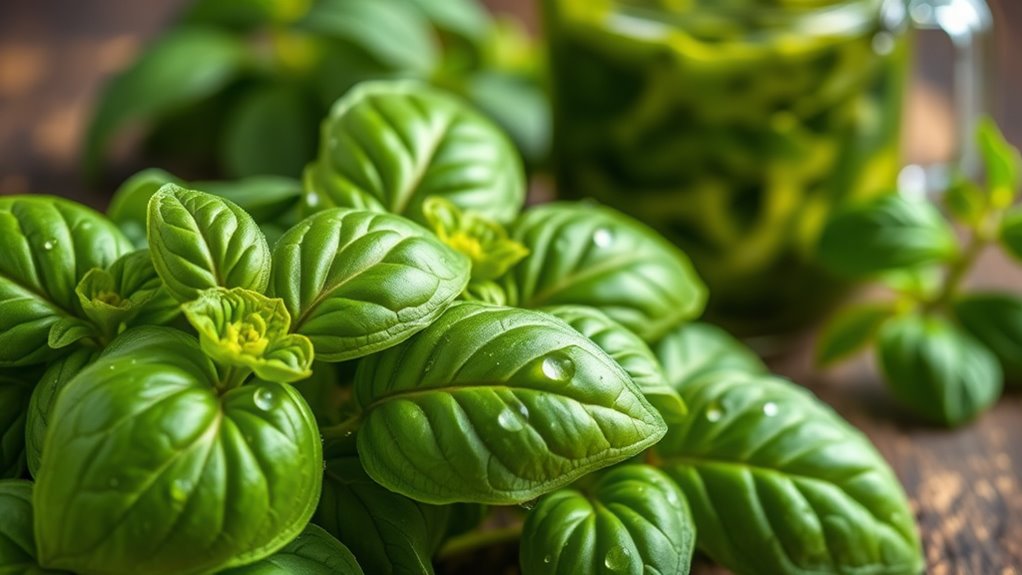This Everyday Herb Helped Me Fight Inflammation Naturally
This everyday herb, turmeric, can help you fight inflammation naturally. Packed with curcumin, it effectively reduces swelling and boosts your immune system. Studies show that regular consumption lowers inflammatory markers and promotes overall health. You can easily incorporate turmeric into your meals by adding it to rice, soups, or herbal teas. By harnessing its benefits consistently, you’ll find relief from discomfort. Stick around; there’s more to explore about maximizing turmeric’s potential in your wellness journey.
The Science Behind Inflammation
When you think about inflammation, it’s easy to associate it only with pain and discomfort, but there’s a complex biological process at play.
Your body activates immune responses to infections or injuries, leading to swelling and redness.
Interestingly, certain herbal anti-inflammatories can help modulate this response. They work by targeting specific pathways, offering a natural way to balance inflammation and promote healing. For example, incorporating anti-inflammatory foods such as ginger can significantly reduce inflammation markers in the body.
Discovering the Herb
As you explore the world of anti-inflammatory herbs, you’ll find that this particular herb has a rich history of use in traditional medicine.
Its nutritional benefits are well-documented, often making it a staple in many diets for promoting overall health. Turmeric, known for its powerful anti-inflammatory compound curcumin, has been utilized for centuries to aid in fighting inflammation. Understanding its historical uses and nutritional value can empower you to incorporate it wisely into your wellness routine.
Historical Uses of Herb
Throughout history, people have turned to this humble herb for its remarkable anti-inflammatory properties, often relying on tradition and folklore to guide their use.
Ancient cultures employed it in remedies for ailments like arthritis and skin irritations. Healers and herbalists recognized its benefits, weaving its use into rituals and therapies, showcasing its endurance as a natural treatment option across generations.
Nutritional Benefits Explored
While many might think of this herb as just a flavorful addition to their meals, its nutritional profile reveals a treasure trove of benefits that can help combat inflammation.
Rich in antioxidants, vitamins, and minerals, it supports your immune system and reduces oxidative stress.
Incorporating this herb into your diet could enhance your overall health and well-being, making it a must-have for your kitchen.
Health Benefits of the Herb
One of the most accessible and powerful herbs for combating inflammation is turmeric.
This bright yellow spice contains curcumin, known for its potent anti-inflammatory properties. Research shows it can help reduce pain and swelling associated with conditions like arthritis. Numerous studies confirm turmeric’s effectiveness in lowering levels of inflammatory markers for improved health outcomes.
Methods of Incorporation Into Your Diet
Incorporating herbs into your diet can be both easy and delicious.
You can enhance your meals by cooking with fresh herbs, brewing aromatic herbal teas, or creating flavorful seasonings and marinades. Each method brings not only unique tastes but also the potential for reducing inflammation in your body. Adding turmeric to your dishes can significantly boost their anti-inflammatory properties while also elevating the flavor profile.
Cooking With Herbs
Herbs can transform your meals into flavorful, health-boosting delights. You can chop fresh herbs like parsley or basil into salads, stir them into soups, or sprinkle them over roasted vegetables.
Try using dried herbs in marinades or sauces for an extra kick. Incorporating herbs not only elevates flavor but also enhances your dish’s nutritional profile, helping you combat inflammation naturally.
Herbal Teas and Infusions
Crafting your meals with fresh herbs is just the beginning of enjoying their benefits.
Herbal teas and infusions are a delicious way to incorporate these powerful plants into your daily routine. Simply steep fresh or dried herbs in hot water for 5-10 minutes.
You’ll enjoy a soothing beverage packed with antioxidants and anti-inflammatory properties that support your health naturally.
Cheers to your well-being!
Seasoning and Marinades
When you want to enhance the flavor and health benefits of your meals, using herbs as seasonings and in marinades can be a game changer. Incorporate herbs like turmeric, rosemary, and garlic to boost anti-inflammatory properties. Check out the table below for easy ideas on incorporating these herbs into your dishes:
| Herb | Flavor Profile | Best Dishes |
|---|---|---|
| Turmeric | Earthy, Warm | Rice, Soups |
| Rosemary | Woody, Pine | Roasted Vegetables |
| Garlic | Pungent, Spicy | Meats, Pasta |
Personal Journey With Inflammation
As you navigate the ups and downs of inflammation, you might find yourself searching for answers and solutions that seem elusive.
You’ve likely tried various approaches, from diet changes to supplements, yet results can vary.
Understanding your body’s signals is crucial. Embracing natural methods, like using specific herbs, can empower your journey. Regular consumption of these remedies can help you discover effective ways to reduce inflammation.
It’s about finding what works best for you, reducing discomfort through informed choices.
Tips for Maximizing Effectiveness
Finding relief from inflammation involves not just choosing the right herbs but also knowing how to use them effectively. Incorporate these tips to maximize the benefits:
| Tip | Description |
|---|---|
| Combine Willingly | Blend herbs with anti-inflammatory foods. |
| Use Freshly | Fresh herbs pack more nutrients than dried. |
| Be Consistent | Regular intake over weeks ensures lasting effects. |
Embrace these strategies to enhance your herbal journey!

